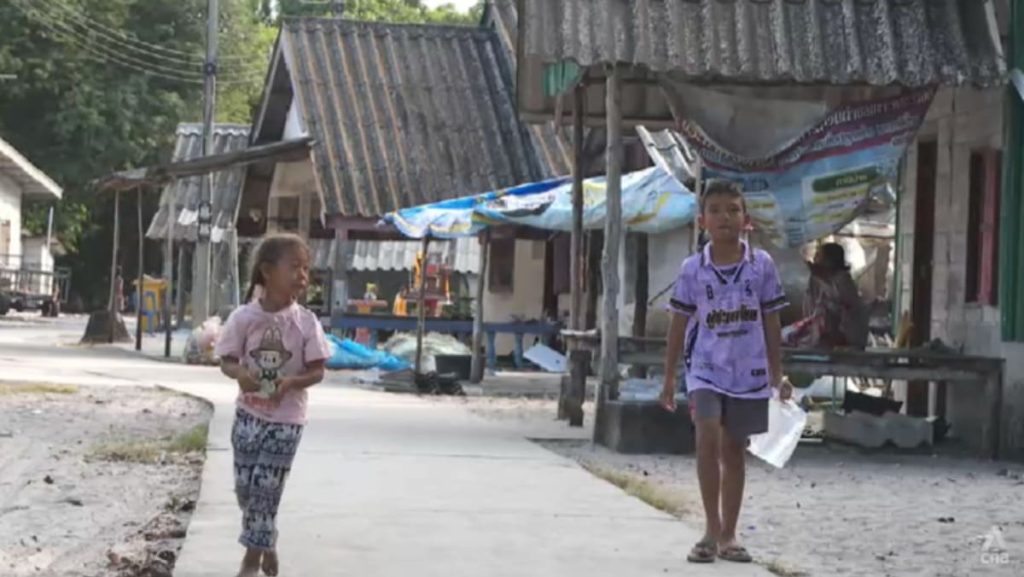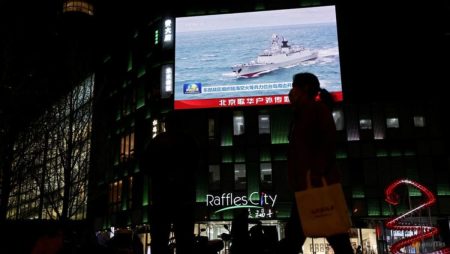The Moken people, an indigenous group inhabiting the coasts and islands of the Andaman Sea, have traditionally lived a nomadic seafaring existence, intimately connected to the ocean’s rhythms. For generations, their lives have revolved around the sea, with their homes being kabangs, intricately crafted boats that served as both dwellings and fishing platforms. Their knowledge of the sea is profound, passed down through generations, allowing them to navigate vast stretches of water and harvest its bounty. This deep connection has shaped their culture, their traditions, and their very identity, earning them the appellation “Sea Nomads” or “Sea Gypsies.” They would traditionally only come ashore during the monsoon season, seeking temporary refuge from the tumultuous storms on land. This cyclical pattern of life, dictated by the natural world, allowed them to live in harmony with the ocean’s ebb and flow, sustaining themselves on its resources and preserving their unique cultural heritage.
However, this traditional way of life is facing unprecedented challenges in the modern era. Increasingly, Moken communities are transitioning from their nomadic seafaring existence to a more settled life on land. Factors such as dwindling fish stocks due to overfishing and environmental degradation, the allure of economic opportunities in urban centers, and access to education and healthcare are driving this shift. This transition, while offering certain advantages, poses a significant threat to the Moken’s cultural survival. As younger generations move to cities in search of work and integrate into mainstream society, they are gradually losing their connection to their ancestral traditions, language, and unique maritime skills. The allure of modern conveniences and the pressures of assimilation are eroding the very essence of what it means to be Moken.
Fang Klathale, a 96-year-old Moken elder, exemplifies this changing dynamic. Having spent most of her life on the sea, she now resides on the mainland to access essential medical services. While her move is driven by necessity, she expresses deep concern for the future of her culture, observing how younger generations are losing their grasp of the Moken language and traditions. Her story encapsulates the broader struggle of the Moken people, caught between the need to adapt to the modern world and the desire to preserve their unique cultural heritage. Koh Phra Thong, Fang’s traditional home, is a microcosm of this transition. Once home to three schools catering to the Moken population, the island now has only one, reflecting the dwindling number of Moken children remaining on the island. The island, while still relatively untouched by mass tourism, is slowly being integrated into the broader Thai economy, further impacting the traditional Moken way of life.
The Moken’s traditional knowledge of the sea is remarkably sophisticated. They possess an intimate understanding of marine ecosystems, weather patterns, and navigation techniques. Their freediving skills are legendary, allowing them to descend to remarkable depths without any breathing apparatus. They have developed a keen ability to identify and harvest various marine resources, utilizing sustainable fishing practices that have ensured the ocean’s bounty for generations. This deep connection to the marine environment has also equipped them with a unique understanding of its vulnerabilities. They are acutely aware of the impacts of overfishing, pollution, and climate change on the delicate balance of marine ecosystems, providing valuable insights into the challenges facing our oceans.
The transition to land-based living presents a complex set of challenges for the Moken. Adapting to a sedentary lifestyle, navigating the complexities of modern economies, and integrating into mainstream society require new skills and knowledge. The Moken, traditionally self-sufficient and reliant on their own resourcefulness, now face the challenges of unemployment, poverty, and social marginalization. Furthermore, the loss of their traditional territories and access to marine resources threatens their food security and economic independence. The struggle to maintain their cultural identity while adapting to a rapidly changing world is a central theme in the Moken’s ongoing story.
The future of the Moken culture hinges on striking a balance between embracing the opportunities of the modern world and preserving the essence of their traditions. Efforts are being made to document and revitalize the Moken language, preserve their traditional knowledge of the sea, and promote sustainable livelihoods that respect their cultural heritage. Empowering Moken communities to participate in decision-making processes that affect their lives is crucial for ensuring their cultural survival. The challenge lies in finding ways to integrate into the broader society without losing the unique identity that has defined them for generations. The world can learn valuable lessons from the Moken’s deep connection to the ocean and their sustainable practices, reminding us of the importance of respecting and preserving the delicate balance of our natural world.










